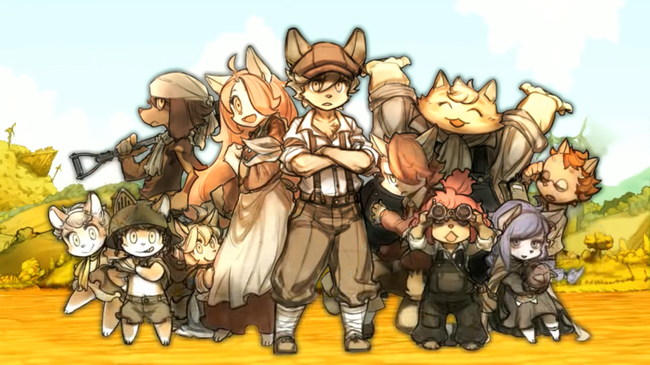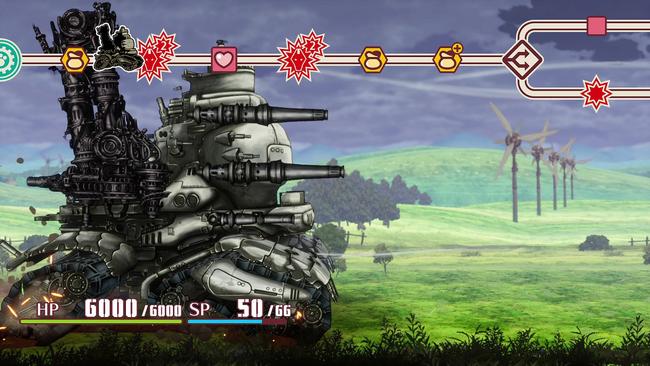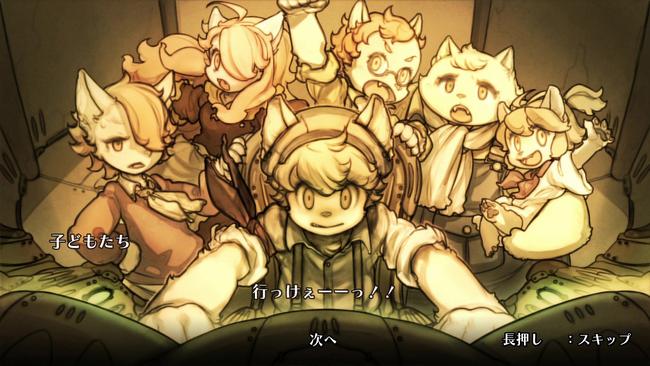Fuga: Melodies of Steel Interview - A Q&A With Creative Director Yoann Gueritot
We've been keeping a close eye on the latest title in the Little Tail Bronx series, Fuga: Melodies of Steel, since shortly following its announcement. Thankfully, though it's been a long time coming, the wait for CyberConnect2's first self-published title's release won't take much longer - as the game has finally been scheduled for a July 29th release.
Following up on that announcement, we had the chance to ask the game's Creative Director, Yoann Gueritot, some questions about the game, and the companies plans for the future. If you haven't read it already, make sure to check out our previous interview with CyberConnect2 Executive Vice President Taichiro Miyazaki!

RPG Site: While both Tail Concerto and Solatorobo shared some similarities with their mech-focused action gameplay, from the offset Fuga: Melodies of Steel has squarely been showcased as a tank-based Strategy RPG. Can you share what lead to that decision, and if there was ever any consideration to developing a game closer in line to the previous entries in the Little Tail Bronx series’ gameplay?
Yoann Gueritot: For Fuga, having an RPG based on the war tank Taranis was an essential design element in order to successfully fuse both gameplay and drama into one. This concept has remained unchanged since it was first conceived. The basic layout here is to train the children as they travel and live their new lives in this tank, and have that be reflected in their stats when in battle.
RPG Site: Much like with Tail Concerto, and Solatorobo’s original Japanese subtitle (And then, to Coda), Fuga’s title also elicits musical themes. Is there any deeper philosophy behind this musical symbolism within Little Tail Bronx’s game titles, and is there anything you’d like to say about how the title “Fuga” or “Fugue” ties into the game’s identity?
Gueritot: Fuga, as you mentioned, does come from the term "fugue," the musical writing technique. This technique employs the use of "imitation" of one or more voices following after one another. This idea of "following" or "chasing" after something is exactly how our story and gameplay are structured, which is why we decided to go with the keyword "Fuga" in the name. Every title in our Little Tail Bronx series has a musical term included, which is part of our branding for the series.

RPG Site: Back when I first played the game at AnimeExpo a few years back, Fuga was described as something akin to a roguelike – it’s been a few years since then, so I’m unsure of how much has changed. Can you maybe explain how randomization might play into the gameplay loop, if that’s indeed still the case?
Gueritot: Our design did in fact stray away from being rogue-like in the end, yes. As we progressed with our development of Fuga those elements gradually faded out from our design, because we realized they were in contradiction with other, more important aspects of the game. This change was also made so that the game design would be easier to grasp, and we could be more conspicuous with the gameplay. That being said, it's come out to be quite the difficult RPG. We think players will be caught in a few tight spots during boss fights regarding whether or not they should use the Soul Cannon.
RPG Site: Previous Little Tail Bronx titles saw release on singular platforms, such as Tail Concerto on the original PlayStation, Solatorobo on the DS, and Little Tail Story on mobile. Fuga: Melodies of Steel, on the other hand, is releasing for essentially every modern platform – including Xbox, PlayStation, Nintendo Switch, and PC. What have been some of the challenges when developing the game for so many platforms at the same time, for a simultaneous worldwide release?
Gueritot: Put simply, our main reason for releasing Fuga on all platforms is because CyberConnect2 is the sole publisher for this title. Manufacturers differ in which platforms they wish to develop their products on, but CyberConnect2 has finally been able to put out a title all on our own, and so our general thought process here was to help our title reach as many fans as possible. Up until this point we've managed to experience game development on a number of platforms (mainly thanks to our Naruto: Ultimate Ninja Storm series). That, and thanks to having adopted Unreal Engine as our development tool, we've had a relatively smooth time developing for multiple platforms in tandem.

RPG Site: Following up on that, not only is the game releasing for so many platforms, but for so many languages as well. Japanese, English, and French make sense – considering CyberConnect2’s Canadian studio – but what sort of leg work has gone into localizing the game into Spanish, Italian, and both Simplified and Traditional Chinese? On a similar note, it appears that you’ve recently been looking for Korean translators for the project, as well – can players expect an additional Korean localization in the future?
Gueritot: Yes, when the game launches it will be available in Japanese, English, French, Spanish, Italian, and Simplified and Traditional Chinese. A little later on in November we expect to have the German and Korean languages released as well. Localization occurs in harmony with game development and it's always tough, but I think we were able to make great use of all the localization experience that we've accumulated over the years. That too, of course, is thanks to Naruto.
RPG Site: Back when I interviewed CyberConnect2’s Vice President at AnimeExpo 2019, there was interest in the company eventually publishing a physical release for Fuga: Melodies of Steel. Those plans, whether they ever progressed anywhere, appear to have changed. Is there any chance that fans might have an opportunity to buy a physical copy somewhere down the line, whether that be through CyberConnect2 themselves, or through a partnership with a company like Limited Run Games?
Gueritot: In the end we decided to go with a digital-only version of Fuga. At the moment we have no plans for a physical version, but who knows what the future might hold in store!
